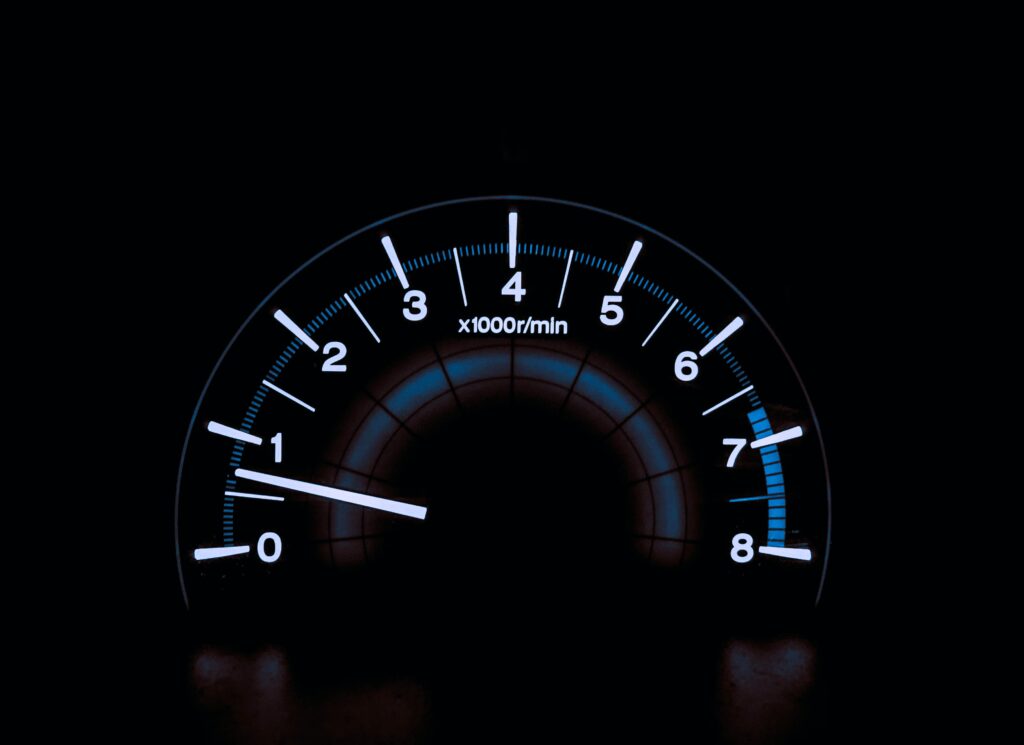Have you ever wondered why your catalytic converter is making strange rattling noises? If so, you’re not alone. Many car owners find themselves puzzled by this common problem. In this article, we’ll explore the reasons behind a rattling catalytic converter and provide you with insights on how to address this issue effectively. So if you’re tired of the annoying sounds coming from under your car, keep reading to discover the causes and solutions for a rattling catalytic converter.

Understanding the Role of the Catalytic Converters
Catalytic converters play a vital role in reducing the harmful emissions produced by vehicles. They are an essential component of the exhaust system, serving to convert toxic gases into less harmful substances before they are released into the environment. By helping to minimize the impact of vehicle emissions on air quality, catalytic converters contribute significantly to environmental conservation and human health.
Purpose of the Catalytic Converter
The primary purpose of a catalytic converter is to minimize the emission of pollutants such as carbon monoxide, nitrogen oxides, and hydrocarbons. These harmful gases are byproducts of the combustion process in the engine. The catalytic converter acts as a catalyst, facilitating chemical reactions that convert these harmful gases into less harmful substances, such as carbon dioxide, nitrogen, and water vapor.
How the Catalytic Converters Work
Catalytic converters contain a honeycomb-like structure with a large surface area coated with precious metals such as platinum, palladium, and rhodium. These metals act as catalysts that help accelerate the chemical reactions. As exhaust gases pass through the catalytic converter, these metals initiate chemical reactions that break down the harmful gases into less harmful compounds. The interaction between the exhaust gases and the catalysts allows for the conversion of carbon monoxide into carbon dioxide, nitrogen oxides into nitrogen and oxygen, and unburned hydrocarbons into carbon dioxide and water vapor.
Catalytic Converter Construction
To better understand why catalytic converters may rattle, it is important to have a basic understanding of their construction. Catalytic converters are composed of several key components that work together to achieve their purpose.
Catalytic Converter Components
The primary components of a catalytic converter include a shell, a substrate, and the catalyst material. The shell is the outer casing that protects the internal components and provides structural support. The substrate, often made of ceramic or metal, is the honeycomb-like structure that provides a large surface area for chemical reactions to take place. The catalyst material, typically composed of precious metals, is coated onto the substrate and serves as the catalyst for the chemical reactions.
Types of Catalytic Converters
There are two main types of catalytic converters: two-way and three-way converters. Two-way converters primarily work to reduce carbon monoxide and unburned hydrocarbons. On the other hand, three-way converters are more sophisticated and also focus on reducing nitrogen oxides in addition to carbon monoxide and hydrocarbons. Three-way converters are commonly used in modern vehicles.
The Internal Makeup of a Catalytic Converter
Within the catalytic converter, the substrate with its honeycomb-like structure provides a large surface area for the chemical reactions to occur. The catalyst material, which is coated onto the substrate, interacts with the exhaust gases that flow through the converter. This interaction triggers the chemical transformations that convert the harmful gases into less harmful compounds. The design of the catalytic converter ensures that the exhaust gases are in contact with the catalyst for an optimal amount of time, allowing for efficient conversion.
Symptoms of a Rattling Catalytic Converter
A rattling sound from the catalytic converter is an important symptom that should not be ignored. It can indicate potential issues with the converter and may require attention or repair. When you hear a rattling noise coming from the catalytic converter, it is important to understand the possible causes and the potential consequences of ignoring the problem.
Unusual Sounds
One of the most noticeable symptoms of a rattling catalytic converter is the presence of unusual sounds, such as rattling, clunking, or metallic noises. These sounds often occur while the vehicle is in motion and can be more pronounced during acceleration or when driving over bumps. The rattling noise typically indicates that something is loose or damaged within the catalytic converter and requires further investigation.
Loss of Power
A rattling catalytic converter can also lead to a noticeable loss of power in the vehicle. This loss of power may be felt during acceleration or when climbing inclines. The rattling noise may be accompanied by a decrease in engine performance, making it more difficult for the vehicle to reach its usual speed or maintain consistent power output. If you experience a significant decrease in power, it is crucial to have a professional assess the situation promptly.
Check Engine Light
The presence of a rattling catalytic converter can trigger the “Check Engine” or “Service Engine Soon” light on the dashboard. The rattling noise is often an indication of a malfunction or damage within the converter, which can trigger the vehicle’s onboard diagnostic system. When the diagnostic system detects an issue, it illuminates the check engine light as a warning to the driver. This light should not be ignored and should prompt further investigation.
Decreased Fuel Efficiency
A rattling catalytic converter can also contribute to decreased fuel efficiency in your vehicle. As the converter becomes damaged or compromised, its ability to convert harmful gases efficiently may be reduced. This can result in a decrease in fuel efficiency, requiring the engine to work harder and use more fuel to produce the same level of power. If you notice a sudden decrease in fuel mileage, it is worth considering the condition of your catalytic converter as a potential factor.
Causes of a Rattling Catalytic Converter
Understanding the potential causes of a rattling catalytic converter can help you pinpoint the issue and determine the appropriate course of action. Several factors can contribute to a catalytic converter becoming loose or damaged, resulting in the rattling noise you are hearing.
Damage Due to Road Debris or Accidents
One common cause of a rattling catalytic converter is damage from road debris or accidents. The converter is located under the vehicle, making it vulnerable to impacts from rocks, debris, or other objects on the road. These impacts can cause physical damage to the converter, potentially leading to loose or broken components and resulting in the rattling noise.
Internal Component Breakdown
Over time, internal components of the catalytic converter can deteriorate or break down, leading to rattling noises. The honeycomb-like substrate can become damaged, causing it to break apart or shift within the converter. Additionally, the catalyst material may wear off or become detached from the substrate. Any breakdown of internal components can result in a rattling sound and requires professional attention.
Excessive Heat
Catalytic converters operate under high temperatures, which can cause expansion and contraction of the internal components. Over time, this repeated thermal stress can lead to fatigue and damage to the converter’s structure. If the converter becomes weakened or distorted due to excessive heat, it may produce a rattling noise.
Misfiring Engine
A misfiring engine can also contribute to a rattling catalytic converter. When the engine misfires, unburned fuel can enter the exhaust system and reach the catalytic converter. The excess fuel can cause the catalyst material to deteriorate or melt, resulting in loose debris inside the converter. These loose debris can cause a rattling noise as they move around within the converter.
Fuel Contamination
Contaminated fuel, such as gasoline contaminated with water or other substances, can damage the catalytic converter and lead to rattling noises. The contaminants can disrupt the chemical reactions taking place within the converter and cause internal components to corrode or break down. This damage can result in a rattling sound when the vehicle is in motion.
Age and Wear
Catalytic converters, like any other vehicle component, can deteriorate with age and wear. Over time, the internal components may become weak, corroded, or damaged, leading to the development of a rattling noise. This gradual wear and tear can affect the overall performance and functionality of the converter, requiring replacement or repair.

Potential Consequences of Ignoring a Rattling Catalytic Converter
Ignoring a rattling catalytic converter can have severe consequences for both your vehicle and the environment. It is essential to address the issue promptly to minimize potential negative impacts.
Increased Pollutant Emission
A rattling catalytic converter may not be able to convert the harmful gases produced by the engine effectively. As a result, the emission of pollutants such as carbon monoxide, nitrogen oxides, and hydrocarbons into the environment may increase. The increased pollutant emission can contribute to air pollution and have detrimental effects on air quality and human health.
Damage to Other Parts of the Exhaust System
A rattling catalytic converter can cause vibrations and movements that can lead to damage to other components of the exhaust system. The excessive movement and strain on the exhaust system can cause exhaust leaks, cracks, or even complete failure of other parts such as the muffler or exhaust pipes. The damage to these components not only affects the performance of the vehicle but also leads to costly repairs.
Reduced Vehicle Performance
As the rattling catalytic converter affects the exhaust system’s overall efficiency, it can result in reduced vehicle performance. The compromised converter may restrict the flow of exhaust gases, leading to backpressure, which can negatively impact engine power output and overall vehicle performance. Reduced performance can result in slower acceleration, decreased responsiveness, and difficulty maintaining higher speeds.
Complete Catalytic Converter Failure
Ignoring a rattling catalytic converter for an extended period can ultimately lead to complete converter failure. The rattling noise is often an indication that something is wrong within the converter, and continued neglect can exacerbate the issue. A failed catalytic converter will not be able to perform its function of reducing harmful emissions, resulting in increased pollution levels and potentially causing further damage to the engine or other vehicle components.
Common Misconceptions About Rattling Catalytic Converters
There are some common misconceptions about rattling catalytic converters that can lead vehicle owners to overlook or underestimate the significance of the issue. It is important to dispel these misconceptions to encourage prompt attention and appropriate action.
Ignoring Early Warning Signs
One common misconception is that a rattling catalytic converter is merely an annoyance and can be ignored. However, the rattling noise should be considered an early warning sign that something is wrong with the converter. Ignoring this indication can lead to more severe issues and costly repairs down the line.
Assuming it’s a Minor Problem
Some vehicle owners may assume that a rattling catalytic converter is a minor problem that will not significantly affect their vehicle’s performance. While the issue may start as a rattling noise, ignoring it can lead to more significant consequences, such as reduced fuel efficiency, loss of power, or even complete converter failure.
Misinterpreting the Rattling Noise
Misinterpreting the source of the rattling noise can also be a common misconception. Some may believe that the noise is coming from a different part of the vehicle, leading them to overlook the catalytic converter as a possible cause. It is crucial to accurately identify the source of the noise to address the issue correctly.
Overlooking the Importance of the Catalytic Converter
The catalytic converter plays a crucial role in reducing vehicle emissions and protecting the environment. Some vehicle owners may underestimate the importance of the catalytic converter and its impact on air quality. However, it is vital to understand that a well-functioning catalytic converter plays an essential role in minimizing pollution and promoting sustainability.

Professional Assessment & Diagnosis
When faced with a rattling catalytic converter, seeking professional assistance is crucial. Automotive experts have the knowledge, experience, and specialized tools to accurately assess and diagnose the issue. Consulting a professional ensures that the problem is properly identified and addressed, reducing the risk of further damage and unnecessary repairs.
Importance of Professional Assistance
Professional assistance is essential when dealing with a rattling catalytic converter. Automotive technicians have the expertise to thoroughly inspect the converter, diagnose the underlying issue, and determine the most appropriate course of action. Attempting to diagnose or repair the converter yourself can be challenging and may cause further damage or result in incorrect repairs.
Diagnostic Procedures
Professionals employ various diagnostic procedures to assess the condition of a rattling catalytic converter. These procedures may include visual inspections, listening to the rattling noise, conducting tests, and using diagnostic equipment to analyze the exhaust gases. These comprehensive diagnostic procedures allow technicians to pinpoint the cause of the rattling noise accurately and recommend the necessary repairs or replacements.
Estimating Repair Costs
Once the issue is diagnosed, professionals can provide an estimate of the repair costs. The cost of repairing a rattling catalytic converter can vary depending on factors such as the severity of the damage, the type of converter, and the labor involved. Obtaining a detailed estimate allows vehicle owners to make informed decisions regarding the necessary repairs and associated costs.
Frequently Asked Questions About Rattling Catalytic Converters
Vehicle owners often have specific questions relating to rattling catalytic converters and their implications. Addressing these frequently asked questions can provide valuable insights and help individuals make informed decisions regarding their own situations.
Can you Drive with a Rattling Converter?
While it is possible to continue driving with a rattling catalytic converter, it is not recommended. Ignoring the issue can lead to further damage and potentially increase the risk of complete converter failure. It is best to consult a professional to assess the situation and determine the appropriate course of action.
How much does it cost to replace?
The cost of replacing a rattling catalytic converter can vary depending on several factors, such as the vehicle make and model, the type of converter, and labor costs. On average, the cost can range from a few hundred dollars to several thousand dollars. Obtaining an estimate from a professional is the most accurate way to determine the specific cost for your vehicle.
How Long does a Catalytic Converter Last?
The lifespan of a catalytic converter can vary depending on several factors, including vehicle usage, driving conditions, and maintenance. In general, a properly maintained converter can last anywhere from 70,000 to 100,000 miles. However, factors such as excessive heat, contamination, and engine misfires can shorten its lifespan.
How to Determine if the Noise is from the Catalytic Converter?
Determining if the noise is coming from the catalytic converter can be challenging without professional assistance. However, if you suspect that the noise is coming from the converter, you can try tapping lightly on the converter while the engine is off to see if the noise is present. If the noise is coming from the converter, it is advisable to consult a professional for a thorough diagnosis.
How often should a catalytic converter be replaced?
In normal circumstances, a catalytic converter does not need to be replaced unless it is damaged or compromised. However, over time, internal components may deteriorate, resulting in reduced efficiency and performance. If a rattling noise is present, it is crucial to have the converter inspected by a professional to determine if replacement is necessary.
What Happens if not Replaced?
If a rattling catalytic converter is not replaced, the consequences can be severe. Ignoring the issue can lead to increased pollutant emissions, damage to other parts of the exhaust system, reduced vehicle performance, and ultimately, complete converter failure. Addressing the issue promptly is necessary to mitigate these potential consequences.
In conclusion, understanding the role and construction of catalytic converters is crucial in recognizing the symptoms, causes, and potential consequences of a rattling catalytic converter. Ignoring the issue or underestimating its significance can lead to increased pollution, damage to the vehicle, and reduced performance. Seeking professional assistance and understanding the importance of the catalytic converter are vital in ensuring the proper diagnosis and repair of a rattling catalytic converter. By addressing the issue promptly, you can maintain the efficiency of your vehicle, reduce harmful emissions, and contribute to a cleaner and healthier environment.
